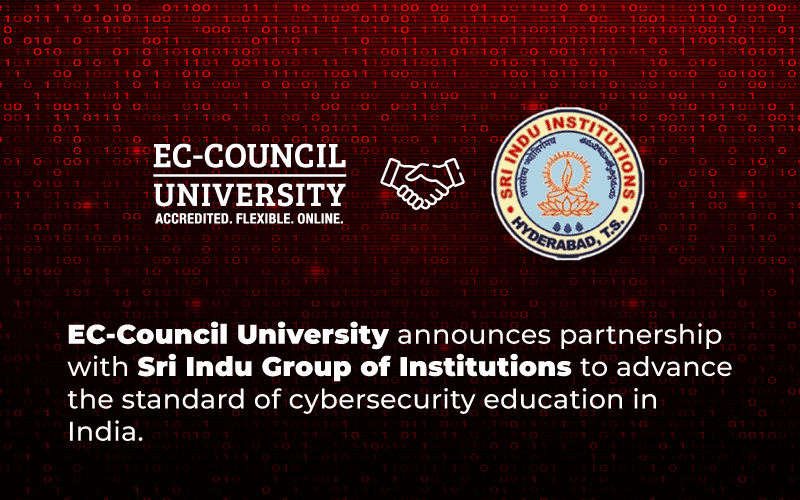The ever-expanding digital landscape brings with it an increasing number of cyber threats. Organizations face increasingly complex challenges in protecting their systems and sensitive data, from ransomware to phishing schemes and large-scale data breaches. This shift in the cybersecurity landscape has led to a growing emphasis on advanced education, with many now questioning whether a master’s degree in cybersecurity is becoming the new standard for success in this field.
The Changing Landscape of Cybersecurity
A decade ago, cybersecurity was primarily about securing networks and mitigating immediate threats. Professionals often entered the field with certifications or on-the-job experience, and these credentials sufficed for most roles. However, the stakes have changed. Global cybercrime costs are projected to increase by 15 percent per year over the next five years, reaching a staggering $10.5 trillion USD annually by 2025 (Cybercrime Magazine, 2020). This exponential growth underscores the urgency for organizations to invest in robust cybersecurity measures and cultivate a highly skilled workforce. Today, organizations must contend with global cyberattacks, regulatory compliance requirements, and a shortage of qualified professionals who can think strategically about long-term cybersecurity initiatives.
Many professionals now turn to advanced education to keep pace with these demands. While certifications remain valuable for gaining specialized knowledge, cybersecurity degrees, particularly .
Why the Need for Advanced Cybersecurity Education?
The increasing prevalence of cyberattacks has emphasized the limitations of a purely technical approach. Modern organizations require cybersecurity professionals who can:
- Understand how security strategies align with broader business goals.
- Navigate complex regulatory environments.
- Develop forward-thinking policies to prevent future breaches.
- Lead teams in mitigating and responding to attacks effectively.
A master’s degree in cybersecurity addresses these needs by blending technical skills with strategic thinking and leadership development. Students graduate with a well-rounded skill set that equips them to tackle real-world cybersecurity challenges. Similarly, a Master’s degree in Cybersecurity from EC-Council University offers a comprehensive curriculum that associates with these industry standards, providing students with the knowledge and skills to excel in leadership roles.
How Cyber Security Degrees Prepare Leaders
While undergraduate programs provide foundational knowledge, cyber security degrees at the master’s level delve into the nuances of the field. Topics like governance, risk management, ethical hacking, and digital forensics are explored in-depth. These programs emphasize managerial and analytical skills, preparing students for senior roles.
Some of the key areas covered in a master's degree in cybersecurity include:
- Advanced Technical Training: Students gain expertise in areas like penetration testing, malware analysis, and cloud security. This technical training ensures that graduates can identify vulnerabilities and implement robust defenses.
- Risk Management and Governance: Understanding how to assess and mitigate risks while aligning security initiatives with business objectives is critical to most programs.
- Legal and Ethical Considerations: As data privacy regulations become more stringent, knowledge of laws like GDPR and CCPA is crucial for compliance.
- Leadership and Strategy: Many master’s programs, like the one provided by EC-Council University, incorporate leadership development, teaching students how to manage teams, communicate with stakeholders, and design comprehensive security strategies.
The Professional Benefits of a Master’s Degree in Cybersecurity
A master’s degree in cybersecurity offers more than just theoretical knowledge; it provides tangible career benefits that make it a worthwhile investment. Here are some of the advantages:
- Increased Earning Potential: Advanced education signals expertise and opens doors to senior roles with higher salaries.
- Career Growth Opportunities: A master’s degree positions graduates for leadership positions, including Chief Information Security Officer (CISO), Security Architect, or Cybersecurity Consultant. These positions require both technical acumen and the ability to think strategically.
- Practical Knowledge for Real-World Challenges: Most master’s programs emphasize hands-on learning through labs, simulations, and case studies. This practical approach ensures that students are prepared to apply their skills immediately upon entering the workforce.
- Networking and Collaboration: Graduate programs often bring together professionals from diverse industries, creating opportunities for networking and collaboration. These connections can be helpful for career advancement.
Why Organizations Value Advanced Cyber Security Degrees
From small startups to multinational corporations, recognizing the value of hiring cybersecurity professionals with advanced degrees. Here’s why:
- Bridging the Skills Gap: The global shortage of cybersecurity professionals has reached critical levels. Those with master’s degrees stand out as highly qualified candidates capable of filling senior roles.
- Proven Expertise: A master’s degree demonstrates a commitment to the field and a mastery of cybersecurity’s technical and strategic aspects.
- Adaptability to Emerging Threats: Cyber threats are constantly evolving. Advanced education prepares professionals to stay ahead by supplying them with the latest knowledge and tools.
- Improved Organizational Resilience: Professionals with master’s degrees are trained to think holistically about cybersecurity, ensuring their strategies support business continuity and resilience.
Is a Master’s Degree in Cybersecurity the Right Choice for You?
Deciding whether to follow a master’s degree in cybersecurity is a personal decision that depends on your career goals, current skill set, and professional aspirations. Here are some questions to consider:
- Do You Aspire to Leadership Roles?
If your goal is to lead cybersecurity initiatives or manage teams, a master’s degree is a valuable qualification that can help you stand out.
- Are You Ready to Invest in Your Career?
While pursuing a master’s degree requires time and financial obligation, the long-term benefits often balance the initial investment.
- Do You Want a Holistic Understanding of Cybersecurity?
A master’s program provides a comprehensive education that goes beyond technical skills, preparing you for strategic and managerial challenges.
Cyber Security Degrees in the Age of Digital Transformation
The responsibility of cybersecurity professionals has never been more critical. As digital transformation accelerates, organizations rely on skilled individuals to protect their data and systems from increasingly sophisticated attacks. Cybersecurity degrees, especially at the graduate level, are becoming a cornerstone of this effort.
The Future of Cybersecurity Education
As cyber threats continue to advance, the mandate for advanced education will only grow. A master’s degree in cybersecurity is quickly becoming the benchmark for professionals looking to make a lasting impact in the field. Whether you’re an aspiring student or an experienced professional pursuing to advance your career, investing in a master’s program could be the key to unlocking new opportunities.
By combining technical expertise with strategic insights, a master’s degree prepares you to tackle the complex challenges of modern cybersecurity. It’s more than just a credential, it’s a transformative step toward becoming a leader in one of the most vital industries of our time.
References:
Cybercrime Magazine. (2020). Cybercrime To Cost The World $10.5 Trillion Annually By 2025. https://cybersecurityventures.com/cybercrime-damages-6-trillion-by-2021/








